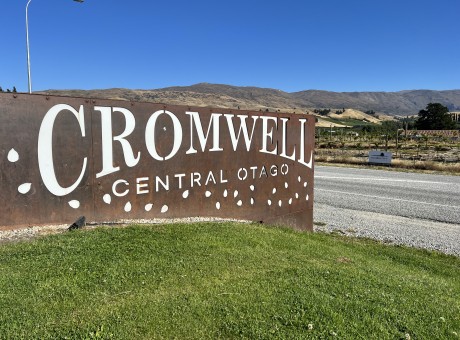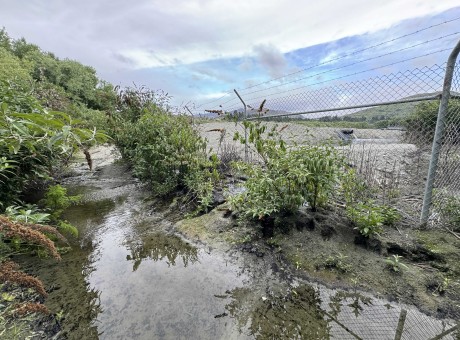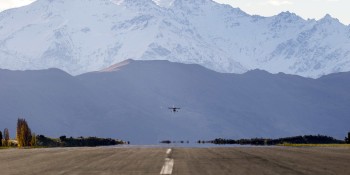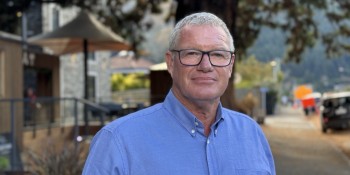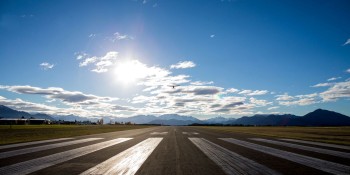Former Queenstown hiking guide claims unsafe working conditions
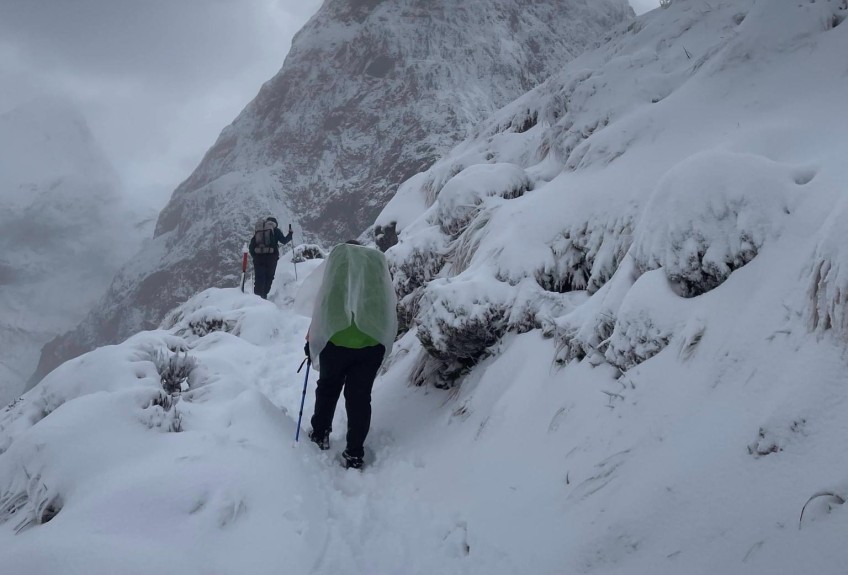
Former Queenstown guide Neil Phillips hiked the Milford, Routeburn, and Greenstone tracks as his job, but says the working conditions were so unsafe they contributed to a “horrendous turnover” at the company.
He says during the last summer guiding season there were so many resignations of trained employees that housekeepers at the lodges located along the track were called on to to suit up and walk with guests as guides.
However, Ultimate Hikes, the company he worked for, is denying this, saying the turnover of staff and the movement between various roles in the company was no different this year than others. It is also backing its health and safety procedures, telling WorkSafe specialised footwear isn't needed to walk the tracks its guides work on and steps are taken to keep staff out of bad weather.
But Mr Phillips has decades of experience working and guiding in national parks and after spending the last two seasons working for Ultimate Hikes stands by his view the company isn't doing enough to look after workers and keep them safe.
He says adequate gear was not supplied to staff, overtime went unpaid and health and safety discussions were discouraged.
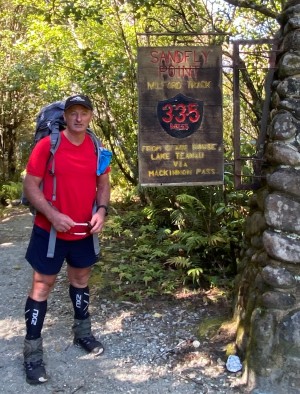
Former Ultimate Hikes guide Neil Phillips out on the Milford Track.
Because there’s no union for employees in the guiding industry, Mr Phillips started talking with colleagues about working conditions, because he felt "someone must take a stand”.
After seeing no change, he says he felt compelled to reach out to the media.
Mr Phillips says first-time guides were paid on a contract of $250 a day for 11 hours, but it was “very rare” for the work day on the track to fit within 11 hours, usually taking 13 or 14 hours.
If this was presented as an hourly rate, with included unpaid meal breaks, this equates to $19.23 an hour for fourteen hours worked.
“The fine print in the work contract states that the 11 hours per day is averaged out over a 20-day period, which turns out includes our days off...so they never have to pay additional hours.”
Mr Phillips says when the team worked a 15-hour day due to a major event out on the track, their request to be paid for the extra four hours worked was denied.
Their workplace is alpine terrain in a range of weather conditions, yet staff are only supplied a raincoat and two merino tops to wear - they need to finance the rest, including their 65L hiking pack, hiking boots, pants and other warm layers.
Mr Phillips thinks this equipment should be classed as personal protective equipment (PPE), and provided by the employer.
During their training week, Mr Phillips says staff were told they were required to purchase additional clothing to have on hand to help keep any ill-equipped walkers safe, but he didn’t agree with this policy.
He suggested instead the company supply a small bag of extra kit for paying clients that would be "be a standard pick up in the mornings prior to a trip” for the guides.
Mr Phillips says this was “flatly refused”.
“The conversation was turned around to make me feel guilty if a death occurred by saying it would be my fault if I didn’t supply extra gear.”
Mr Phillips thinks the investment by the company into extra clothing “would cost in the scheme of things very little”.
He contacted WorkSafe New Zealand in April to look into the case surrounding PPE equipment.
The government authority made initial enquires but chose not to open an investigation.
In a response to Crux a spokesperson for WorkSafe says the tour company told them specialised footwear, while encouraged, was not needed by its guides.
"We (WorkSafe) were also told that the PPE provided is adequate because steps are taken to avoid severe weather events."
Noted by the WorkSafe enquiry was an Ultimate Hikes team handbook that provides information and guidance on conditions and gear required.
The spokesperson says WorkSafe had "written to the business, encouraging it to consider if health and safety improvements are required to ensure continued compliance with the Health and Safety at Work Act 2015".
While there are no specific guidelines for guiding industry, the Act does require all businesses to ensure their workers have the right gear to be able to do their work safely.
"If guides need boots and packs primarily to protect their own health and safety, then the employer is responsible for ensuring this is provided," the WorkSafe spokesperson says.
"Extra clothing layers for customers should be paid for by the business."
Ultimate Hikes issued Crux a statement on behalf of general manager Noel Saxon, who is currently on leave.
“Ultimate Hikes is a seasonal business operating only through summer. Both our GM and operations manager are currently on leave and they are the two people that have the knowledge to be able to comment on your questions.
“We would however note that we are not able to comment on specific individual employment-related matters.
“We can also say we did not have a higher number of trained guide resignations and lodge housekeepers becoming guides than is normal throughout the course of a season.
“Work Safe have been in touch with us over some of the points raised...and have advised they do not need to take any further action on these matters.
“Ultimate Hikes are very committed to providing a healthy and safe working environment and we continually review policies and procedures when issues are raised. We encourage all staff to engage with management on any health, safety and wellbeing concerns.”
However Mr Phillips says his experience with management differed.
Before finishing up with the company in February this year, he says he started talking about health and safety with other staff members, estimating approximately half of his 20-or-so colleagues shared his concerns and supported the idea of a guide allowance for extra gear.
He remembers these conversations being shut down by management.
“I was told very firmly by the three managers to stop bringing this up with other staff as it was making for an unsettled workplace.
“Any staff member is allowed to discuss this with colleagues under the Health and Safety Act.
“I was also told [by other guides] that anyone who speaks out against the company, or who tries to make changes, will not be offered another contract for the following season.”
He says this culture means that many do not want to speak out about the conditions.
Adding to that are the number of employees who simply love their jobs because they “just want to be in the mountains” - many of them in their early twenties and happy to be here from around the world - Australia, France and the United Kingdom - and receiving one week of training prior to guiding in foreign terrain, he says.
A local union representative for UNITE, Simon Edmunds, of Queenstown, says although he does not know the individual employee, the company or the employment matter, so is unable to comment on specifics, it is not uncommon for businesses to avoid supplying workers with the right gear for a job.
For example, it's usual for hospitality kitchen workers to purchase their own footwear - it can vary from workplace to workplace, he says.
But it is his view some of the equipment needing to be worn by guides might be considered PPE.
Mr Edmunds says Unite would be concerned if any employee in any sector was told they couldn't have health and safety conversations.
He wants workers to know they can form a Health and Safety Committee at their workplace if the business has more than 20 workers.
Main image: Taken by former Queenstown guide Neil Phillips out on the McKinnon Pass on the Milford Track in late November 2022.






